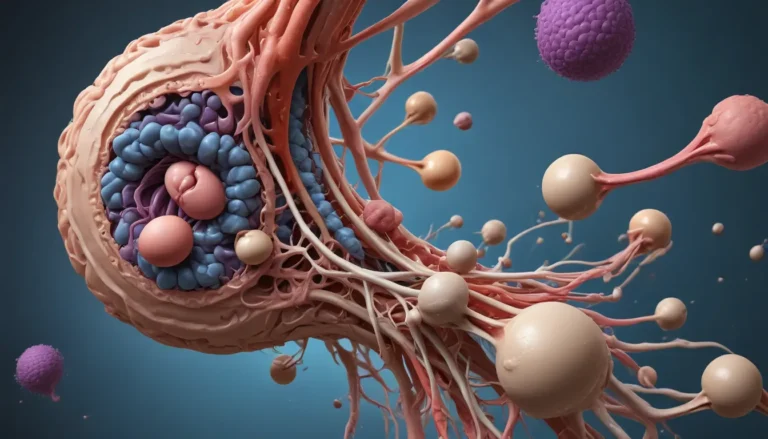A Note About Images: The images used in our articles are for illustration purposes only and may not exactly match the content. They are meant to engage readers, but the text should be relied upon for accurate information.
Regenerative medicine, a rapidly advancing field, offers a plethora of potential for transforming healthcare and enhancing the quality of life for countless individuals. By combining biology, engineering, and technology, regenerative medicine aims to develop innovative therapies that can repair, replace, or regenerate damaged tissues and organs. In this article, we will explore 15 extraordinary facts about regenerative medicine, shedding light on its remarkable potential to address various medical conditions and revolutionize healthcare practices.
Key Takeaways:
- Regenerative medicine utilizes the body’s healing abilities to repair and regenerate damaged tissues, offering potential treatments for a wide range of conditions.
- Stem cells, 3D printing, and gene therapy are revolutionizing regenerative medicine, with the potential to extend human lifespan and revolutionize healthcare practices.
Regenerative Medicine Unveiled: Exploring the Possibilities
Regenerative medicine is a groundbreaking field that seeks to restore, replace, or regenerate damaged tissues and organs by harnessing the body’s intrinsic healing capabilities. Stem cells, the cornerstone of regenerative medicine, play a pivotal role in differentiating into various cell types to facilitate tissue repair and regeneration.
From degenerative diseases like Alzheimer’s and Parkinson’s to injuries such as spinal cord damage and heart disease, regenerative medicine offers hope for treating a myriad of medical conditions that were once deemed incurable.
Innovations Driving Regenerative Medicine Forward
-
3D Printing Revolution: Scientists are leveraging 3D printing technology to create customized scaffolds that support cell and tissue growth, enabling the development of patient-specific implants and organs.
-
The Healing Power of Regenerative Medicine: By stimulating the body’s natural regenerative capacities, regenerative medicine accelerates healing, reduces scarring, and enhances tissue function.
-
Ongoing Clinical Trials: Research teams worldwide conduct clinical trials to evaluate the safety and efficacy of regenerative medicine therapies, bringing us closer to widespread implementation.
-
The Role of Gene Therapy: Gene therapy, part of regenerative medicine, involves modifying or replacing defective genes to correct genetic disorders, offering new avenues for treatment.
The Promise of Regenerative Medicine: A Glimpse into the Future
Regenerative medicine holds vast potential as an alternative to organ transplantation by harnessing stem cells and tissue engineering to address the shortage of donor organs. Moreover, regenerative medicine extends its benefits to veterinary care, where animals benefit from therapies that regenerate damaged tissues and enhance their quality of life.
Additionally, regenerative medicine encompasses therapies like platelet-rich plasma (PRP) injections, which use the patient’s platelets to promote healing in tissues such as tendons and ligaments. The field also explores tissue engineering using various biomaterials and cells to develop tissues for transplantation and regeneration.
FAQ: Unveiling the Essence of Regenerative Medicine
-
Understanding Regenerative Medicine: Regenerative medicine aims to restore, repair, or replace damaged tissues and organs using innovative techniques.
-
Mechanisms of Regenerative Medicine: Stem cell therapy and tissue engineering are employed to replace damaged cells and grow tissues and organs in regenerative medicine.
-
Treatment Scope: Regenerative medicine has the potential to treat a wide array of conditions, from cardiovascular diseases to neurological disorders.
-
Risks and Benefits: Like any medical procedure, regenerative medicine carries risks and side effects that vary based on techniques and patient factors.
-
Accessibility: While regenerative medicine is evolving rapidly, treatments are becoming available to the public under varying healthcare regulations.
The Transformative Power of Regenerative Medicine
Regenerative medicine represents a dynamic and rapidly evolving field with the potential to revolutionize healthcare by tapping into the body’s natural healing abilities. By addressing age-related degeneration, regenerative medicine may contribute to extending overall healthspan, leading to longer, healthier lives for individuals.
In conclusion, regenerative medicine showcases unparalleled promise for revolutionizing healthcare and enhancing the quality of life. From tissue engineering to stem cell therapy, the strides made in this field hold the key to reshaping the future of healthcare practices.
Dive Deeper into the World of Regenerative Medicine
Discover the profound impact of dedifferentiation and transdifferentiation in tissue repair, along with the remarkable possibilities that embryonic stem cells offer in regenerative medicine. Explore the captivating realm of regenerative medicine to gain insight into the future of healthcare.
Explore with Confidence: Our Commitment to Authenticity
At our core, we are dedicated to delivering trustworthy and engaging content that is shaped by real user contributions. Each fact shared on our platform undergoes meticulous review by our editors to ensure accuracy and reliability. Explore and learn with confidence, knowing that our commitment to quality and authenticity underpins every piece of information you encounter.






